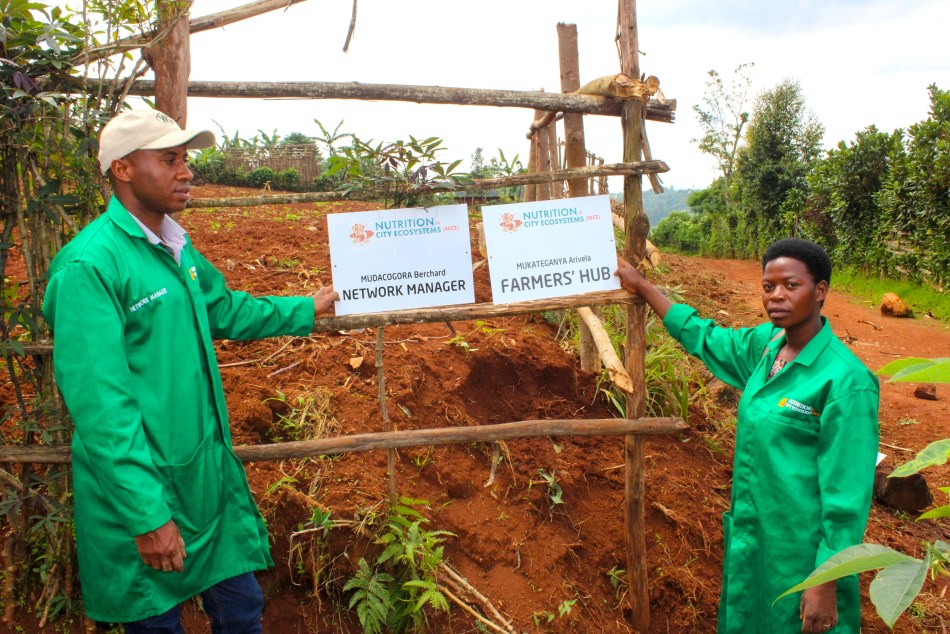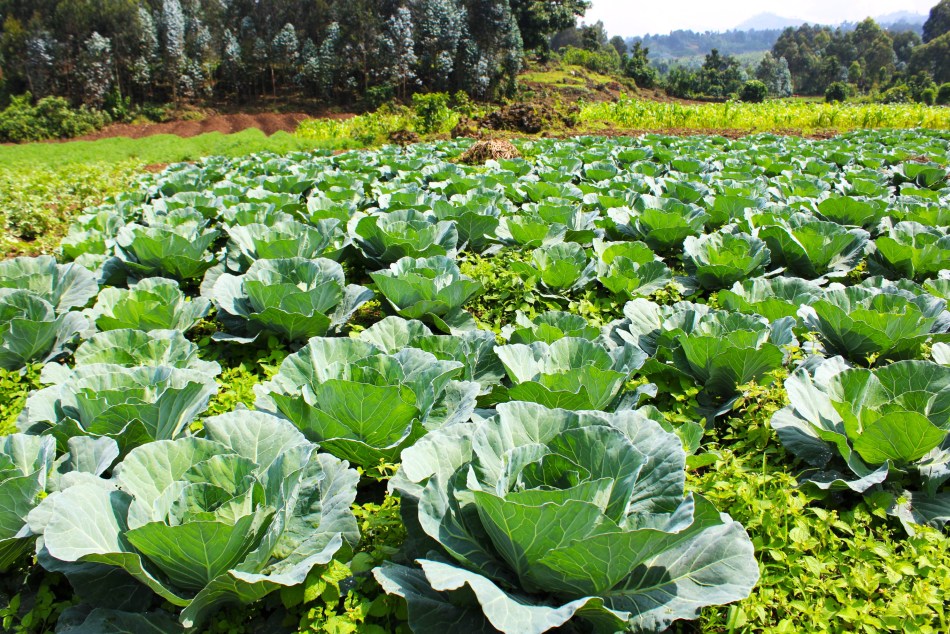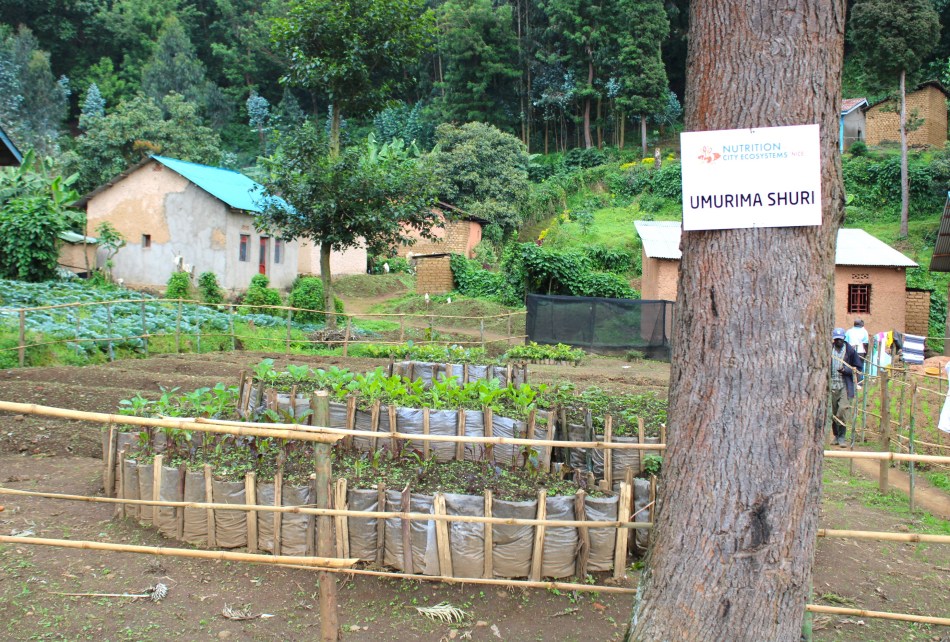The NICE project introduced the Farmers’ Hub in Rwanda’s secondary cities, empowering farmers through invaluable training and resources to improve their farming practices. NICE has also equipped Farmers’ Hub owners and network managers with mobile smartphones, enabling them to efficiently track their transactions and analyze profits with their smallholder farmers’ activities.

Alivera Mukateganya, a Farmers’ Hub owner from Nyakarenzo sector in Rusizi district, is passionate about her work. NICE trained Mukateganya on agroecology, on how to trade profitably and on managing the business while protecting the environment:
Previously, we conducted trade informally, lacking proper documentation and knowledge, particularly regarding medicine usage and its effects. NICE has played a key role in the development of our business serving small-scale farmers. It provided comprehensive training in financial management, marketing, and entrepreneurial skills, enabling us to enhance business operations and increase customer orders, stock, and income. Additionally, NICE facilitates collaboration with smallholders to improve their agricultural practices and connects them to markets. Through activities like farm visits and practical demonstrations, we learn and implement effective agricultural techniques.
Alivera Mukateganya, Farmers’ Hub owner in Rusizi

Mudacogora Berchard is a network manager in Rusizi’s Nyakarenzo sector and he appreciates NICE’s communication training, its advocacy for nutritious food and its contribution to improving livelihoods in the community.
I work closely with agricultural workers and with the Farmers’ Hub owners, focusing on increased productivity and providing agricultural inputs for farming and livestock. We have been able to do all this thanks to the training we have received, which has enabled good interaction between us.
Berchard Mudacogora, Network Manager in Rusizi

Obed Irafasha, owner of a Farmers’ Hub in Rubavu district’s Rugerero sector, provides agricultural and veterinary products as well as advisory services to more than 200 farmers a month.
Thanks to the NICE project, our business has grown significantly, allowing us to better understand and articulate our values, customer needs and improve management practices. The NICE project also introduced E-Hub technology systems, improving our business management skills. Previously, our monthly income was limited to RFW 50,000, but with the support of the project, we now earn over RFW 100,000 a month. As a Farmers’ Hub, we are committed to advancing agriculture and livestock production to ensure food security for all.
Obed Irafsha, Farmers’ Hub owner in Rubavu

By applying their new knowledge and using the tools provided by NICE, farmers are promoting sustainable agriculture and improving the living standards of their communities.
